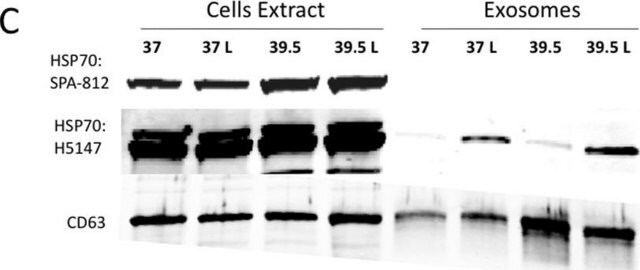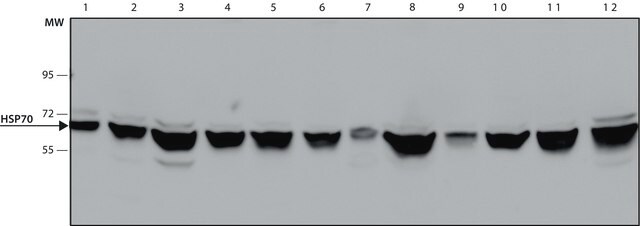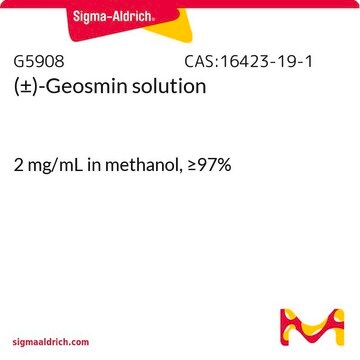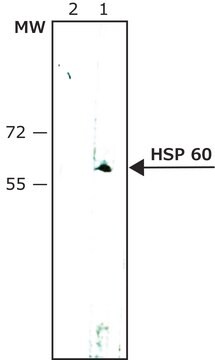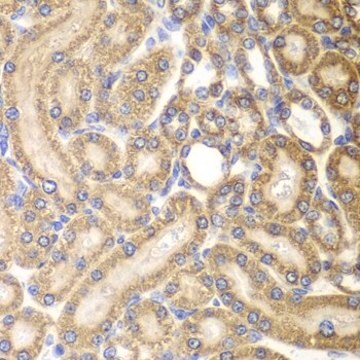H3524
Monoclonal Anti-Heat Shock Protein 60 antibody produced in mouse
clone LK2, ascites fluid
Sinónimos:
Anti-CPN60, Anti-GROEL, Anti-HLD4, Anti-HSP-60, Anti-HSP60, Anti-HSP65, Anti-HuCHA60, Anti-SPG13
About This Item
Productos recomendados
biological source
mouse
conjugate
unconjugated
antibody form
ascites fluid
antibody product type
primary antibodies
clone
LK2, monoclonal
mol wt
antigen 60 kDa
contains
15 mM sodium azide
species reactivity
spinach, chicken, E. coli, helminth, rat, human
technique(s)
electron microscopy: suitable
immunohistochemistry (formalin-fixed, paraffin-embedded sections): suitable
indirect ELISA: suitable
western blot: 1:100 using cultured human foreskin fibroblast extract
isotype
IgG1
UniProt accession no.
shipped in
dry ice
storage temp.
−20°C
target post-translational modification
unmodified
Gene Information
human ... HSPD1(3329)
rat ... Hspd1(63868)
General description
Immunogen
Application
Biochem/physiol Actions
Disclaimer
¿No encuentra el producto adecuado?
Pruebe nuestro Herramienta de selección de productos.
Optional
Storage Class
10 - Combustible liquids
wgk_germany
nwg
flash_point_f
Not applicable
flash_point_c
Not applicable
Certificados de análisis (COA)
Busque Certificados de análisis (COA) introduciendo el número de lote del producto. Los números de lote se encuentran en la etiqueta del producto después de las palabras «Lot» o «Batch»
¿Ya tiene este producto?
Encuentre la documentación para los productos que ha comprado recientemente en la Biblioteca de documentos.
Nuestro equipo de científicos tiene experiencia en todas las áreas de investigación: Ciencias de la vida, Ciencia de los materiales, Síntesis química, Cromatografía, Analítica y muchas otras.
Póngase en contacto con el Servicio técnico